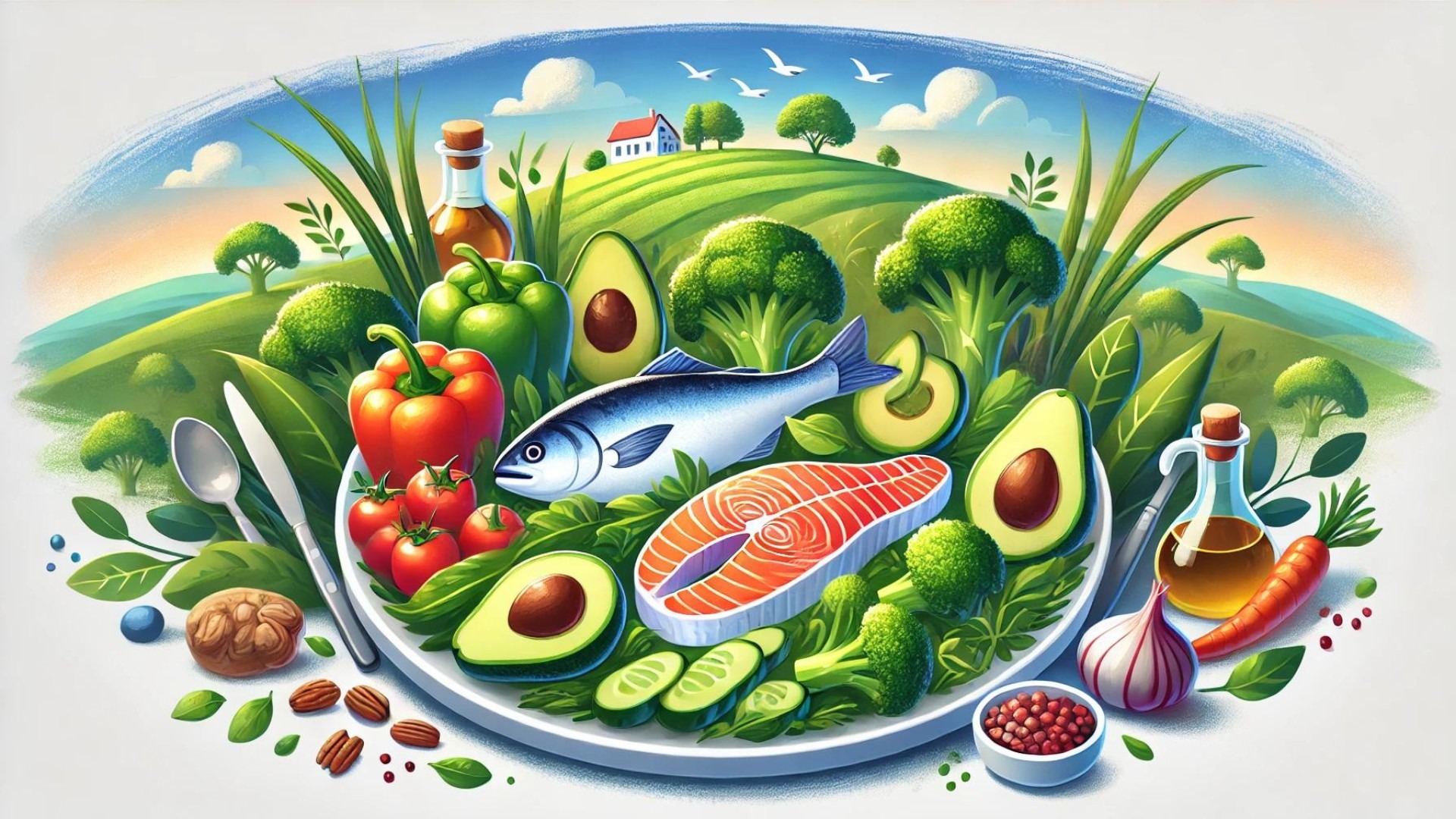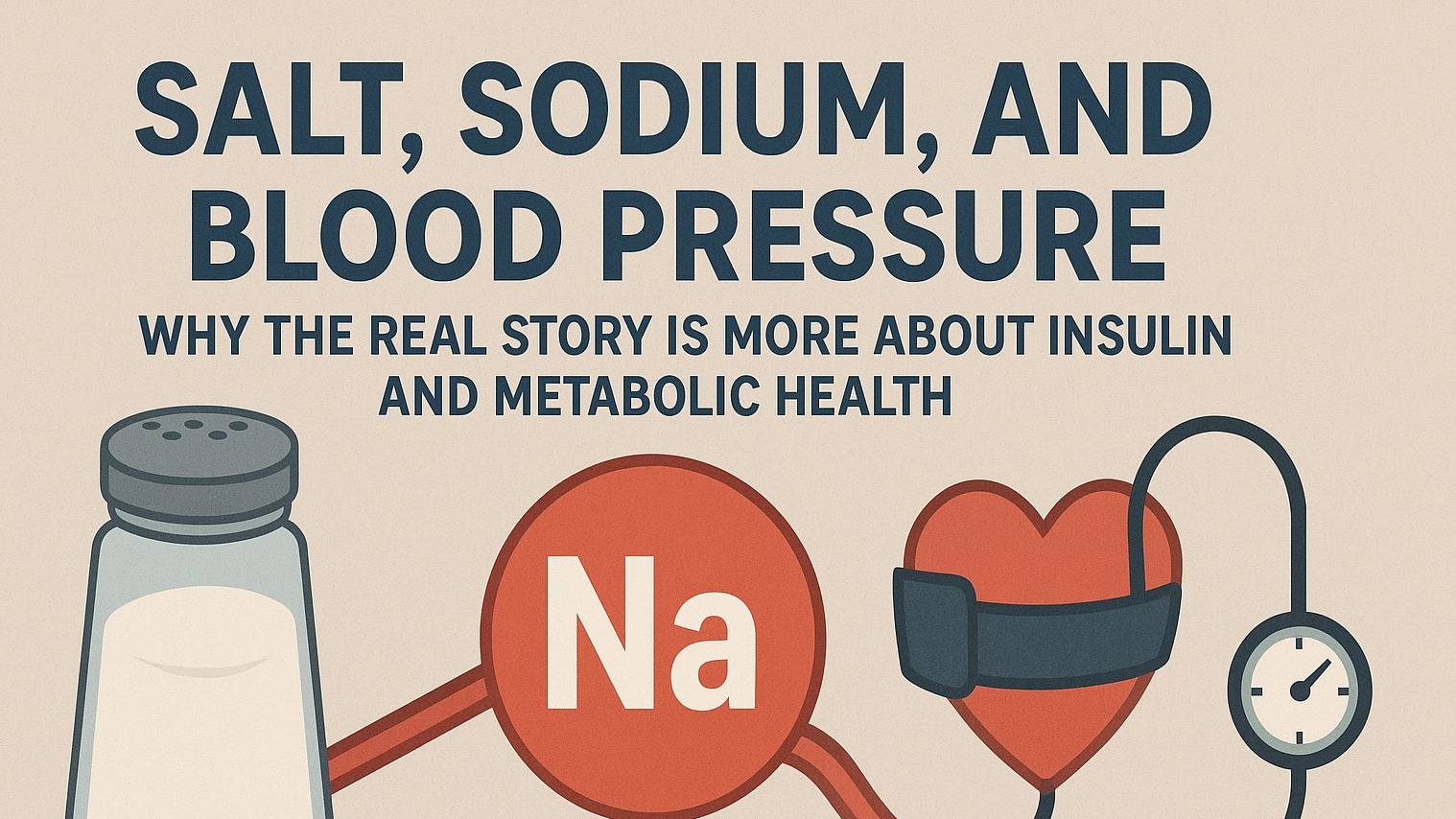
When managing pre-diabetes and diabetes, a diet rich in whole foods like vegetables, nuts, seeds, healthy fats, and proteins can play a crucial role in controlling blood sugar levels, enhancing insulin sensitivity, and reducing the risk of complications. This grain-free guide focuses on nutrient-dense options that support balanced blood sugar without relying on grains.
Understanding Pre-Diabetes and Diabetes
Pre-diabetes signals that blood sugar levels are elevated, but not high enough to be classified as diabetes. Left unchecked, pre-diabetes can progress to type 2 diabetes, increasing the risk of heart disease and stroke. Type 2 diabetes is characterized by insulin resistance or insufficient insulin production, leading to elevated blood glucose.
Diet is key to managing these conditions. A grain-free diet emphasizes whole, nutrient-rich foods that promote stable blood sugar levels and improve overall metabolic health.
Prioritizing Vegetables for Healthy Carbohydrates
Vegetables, particularly non-starchy varieties, are rich in fiber, vitamins, and minerals while being low in carbohydrates. They provide essential nutrients without causing rapid spikes in blood glucose, making them ideal for managing blood sugar levels.
Scientific Insight: Vegetables and Blood Sugar Control
A study published in Nutrients found that increasing vegetable intake, particularly leafy greens, significantly improved blood sugar regulation and insulin sensitivity in individuals with type 2 diabetes.
Key Foods:
Leafy greens (e.g., spinach, kale, arugula): Low in carbohydrates and rich in fiber.
Cruciferous vegetables (e.g., broccoli, cauliflower, brussel sprouts): Packed with nutrients that help regulate blood glucose.
Bell peppers, zucchini, green beans, eggplant, cabbage, asparagus: These non-starchy vegetables provide essential vitamins with minimal carbohydrate content.
Incorporating Nuts and Seeds for Fiber and Healthy Fats
Nuts and seeds are excellent sources of fiber, healthy fats, and protein, all of which help slow down the absorption of sugar and prevent blood sugar spikes. They also offer anti-inflammatory benefits, which can help mitigate complications associated with diabetes.
Scientific Data: The Role of Nuts in Diabetes Management
A study in the American Journal of Clinical Nutrition showed that regular consumption of nuts, particularly almonds and walnuts, improved insulin sensitivity and helped reduce fasting blood glucose levels in individuals with pre-diabetes and diabetes.
Key Foods:
Almonds, walnuts, and pecans: Rich in healthy fats, protein, and fiber.
Chia seeds and flaxseeds: High in soluble fiber, which can help regulate blood sugar levels.
Pumpkin seeds and sunflower seeds: Provide essential minerals like magnesium, which plays a role in insulin function.
Focusing on Healthy Fats: Avocado, Olive Oil, Coconut Oil, and Grass-Fed Butter
Healthy fats, such as those found in avocados, extra virgin olive oil (EVOO), coconut oil, and grass-fed butter or ghee, are essential for managing diabetes. These fats help reduce inflammation, support heart health, and improve insulin sensitivity.
Scientific Insight: Impact of Healthy Fats on Blood Sugar
A study in the American Journal of Clinical Nutrition showed that regular consumption of nuts, particularly almonds and walnuts, improved insulin sensitivity and helped reduce fasting blood glucose levels in individuals with pre-diabetes and diabetes.
Key Foods:
Almonds, walnuts, and pecans: Rich in healthy fats, protein, and fiber.
Chia seeds and flaxseeds: High in soluble fiber, which can help regulate blood sugar levels.
Pumpkin seeds and sunflower seeds: Provide essential minerals like magnesium, which plays a role in insulin function.
Focusing on Healthy Fats: Avocado, Olive Oil, Coconut Oil, and Grass-Fed Butter
Healthy fats, such as those found in avocados, extra virgin olive oil (EVOO), coconut oil, and grass-fed butter or ghee, are essential for managing diabetes. These fats help reduce inflammation, support heart health, and improve insulin sensitivity.
Scientific Insight: Impact of Healthy Fats on Blood Sugar
Research published in the Journal of the American Medical Association (JAMA) found that diets rich in monounsaturated and saturated fats, particularly from sources like avocados, olive oil, and coconut oil, significantly improved blood sugar control and reduced markers of inflammation in people with diabetes. Starting your meals with healthy fats and proteins will fill you up faster than any other foods. Eat your vegetables after you finish your healthy fats and protein.
Key Foods:
Avocados: High in monounsaturated fats, which improve insulin sensitivity and stabilize blood sugar.
Extra virgin olive oil (EVOO): Rich in antioxidants and healthy fats that help reduce inflammation and protect against heart disease.
Coconut oil: Contains medium-chain triglycerides (MCTs), which may enhance fat metabolism and support stable blood sugar levels.
Grass-fed butter or ghee: Contains healthy fats and fat-soluble vitamins like A and D, which are essential for metabolic health.
Prioritizing High-Quality Protein
Protein helps regulate blood sugar by promoting satiety and minimizing the likelihood of overeating, which can lead to blood sugar spikes. Additionally, protein has minimal impact on glucose levels and is crucial for maintaining muscle mass, especially in individuals with diabetes who are working to control weight. We recommend you start eating your proteins and healthy fats first before you start your vegetables. You will see how protein and healthy fats fill you up faster than any other foods.
Scientific Data: Protein and Glycemic Control
A study published in the American Diabetes Association's journal found that moderate protein intake helped stabilize postprandial (after-meal) blood glucose levels and improved weight management in people with diabetes.
Key Foods:
Grass-fed beef and lamb: Provide high-quality protein and essential fatty acids.
Pasture-raised poultry and eggs: Great sources of lean protein with minimal impact on blood sugar.
Wild-caught fish (e.g., salmon, sardines): High in omega-3 fatty acids, which reduce inflammation and improve insulin sensitivity.+
Eliminating Grains and Refined Carbohydrates
Grains, particularly refined grains like white bread and pasta, can cause rapid increases in blood sugar levels. By eliminating grains and replacing them with fiber-rich vegetables, nuts, seeds, and healthy fats, blood sugar levels can be better regulated.
Scientific Insight: Impact of Grain-Free Diets on Insulin Sensitivity
A study in Diabetes Care demonstrated that low-carbohydrate, grain-free diets led to significant improvements in insulin sensitivity and blood sugar control in individuals with type 2 diabetes. Reducing overall carbohydrate intake, particularly from grains, can prevent large fluctuations in blood glucose.
Key Foods to Avoid:
All grains (e.g., wheat, rice, oats): These foods contain carbohydrates that can spike blood sugar.
Refined sugars and processed snacks: These rapidly digestible carbohydrates cause sharp increases in blood glucose.
Hydration: The Role of Water in Blood Sugar Control
Staying hydrated is essential for optimal metabolic function. Dehydration can lead to elevated blood sugar levels, as the concentration of glucose in the bloodstream increases when the body lacks sufficient fluids. When eating a whole food program, you will need to add electrolytes and salt, so get a good no sugar added electrolyte. We like LMNT: https://drinklmnt.com/collections/salt
Scientific Data: Hydration and Blood Sugar
A study published in Diabetes Care found that individuals who drank adequate amounts of water were less likely to experience elevated blood glucose levels compared to those who consumed sugar-sweetened beverages.
Key Strategy:
Water: Drink at least 8 glasses of 8 oz. water per day to support kidney function and maintain balanced blood sugar levels. When eating whole foods, add salty electrolytes to your water to maintain proper nutrient balance. I like to use LMNT, I use half a packet into a 16 oz metal bottle and use the other half on my second bottle. https://drinklmnt.com/collections/salt. Larson Health does not get paid for this.
Conclusion: A Grain-Free, Whole-Food Approach
Managing pre-diabetes and diabetes with a grain-free diet that emphasizes vegetables, nuts, seeds, healthy fats, and quality proteins is supported by scientific evidence. This approach helps regulate blood sugar, improve insulin sensitivity, and promote overall metabolic health without the need for grains.
By prioritizing non-starchy vegetables, healthy fats like avocado and EVOO, fiber-rich nuts and seeds, and high-quality protein, individuals with pre-diabetes and diabetes can better control their condition and reduce the risk of complications.
References:
Nutrients, The Impact of Vegetables on Blood Sugar Control
American Journal of Clinical Nutrition, Effects of Nut Consumption on Diabetes Management
JAMA, Benefits of Healthy Fats for Blood Sugar Regulation
American Diabetes Association Journal, Protein and Blood Glucose Control
Diabetes Care, Low-Carbohydrate, Grain-Free Diets for Insulin Sensitivity
 Add Row
Add Row  Add
Add 










Write A Comment